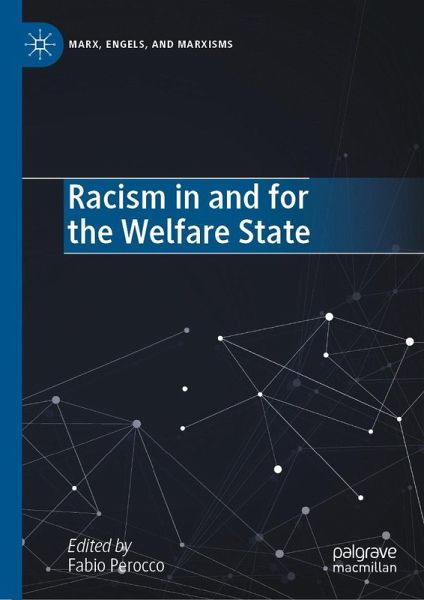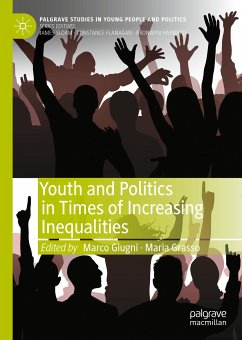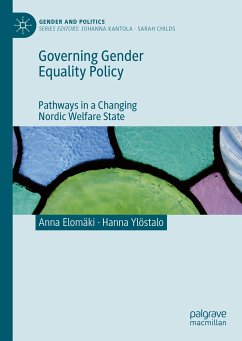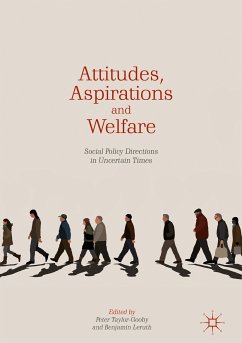
Racism in and for the Welfare State (eBook, PDF)
Versandkostenfrei!
Sofort per Download lieferbar
112,95 €
inkl. MwSt.
Weitere Ausgaben:

PAYBACK Punkte
56 °P sammeln!
This book presents a global overview of racism against immigrants within and in the name of the welfare state. Rich in documents and historical perspective, it analyses politics, practices, and discourses of welfare racism through the exam of discriminatory laws, measures and speeches by institutional actors, public figures, and organizations.The strength and persistence of this form of racism are due to several factors, including racism's structural position in modern society, a colonial root of welfare state, the intrinsic limits of social rights in capitalism, and punitive migration policie...
This book presents a global overview of racism against immigrants within and in the name of the welfare state. Rich in documents and historical perspective, it analyses politics, practices, and discourses of welfare racism through the exam of discriminatory laws, measures and speeches by institutional actors, public figures, and organizations.
The strength and persistence of this form of racism are due to several factors, including racism's structural position in modern society, a colonial root of welfare state, the intrinsic limits of social rights in capitalism, and punitive migration policies.
An instrument of selection, exclusion and stigmatisation, welfare racism is a distinguishing feature of anti-immigrant institutional policies, which became specially aggressive in the neoliberal era with the dismantling of the welfare state and social rights.
Integrating perspectives from Belgium, Brazil, Germany, Hungary, Israel, Italy, Japan, Spain, Sweden, the United Kingdom, and the United States, welfare racism results a global and structured phenomenon concerning world labour as a whole, producing inequalities and division in the working class.
The strength and persistence of this form of racism are due to several factors, including racism's structural position in modern society, a colonial root of welfare state, the intrinsic limits of social rights in capitalism, and punitive migration policies.
An instrument of selection, exclusion and stigmatisation, welfare racism is a distinguishing feature of anti-immigrant institutional policies, which became specially aggressive in the neoliberal era with the dismantling of the welfare state and social rights.
Integrating perspectives from Belgium, Brazil, Germany, Hungary, Israel, Italy, Japan, Spain, Sweden, the United Kingdom, and the United States, welfare racism results a global and structured phenomenon concerning world labour as a whole, producing inequalities and division in the working class.
Dieser Download kann aus rechtlichen Gründen nur mit Rechnungsadresse in A, B, BG, CY, CZ, D, DK, EW, E, FIN, F, GR, HR, H, IRL, I, LT, L, LR, M, NL, PL, P, R, S, SLO, SK ausgeliefert werden.












